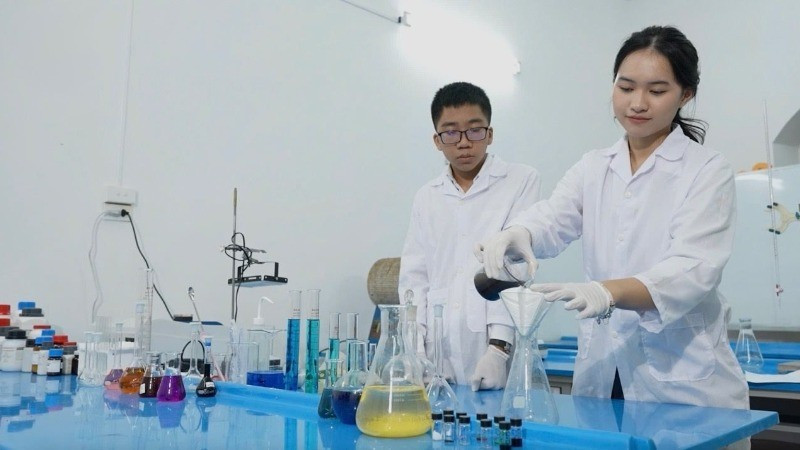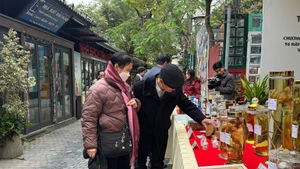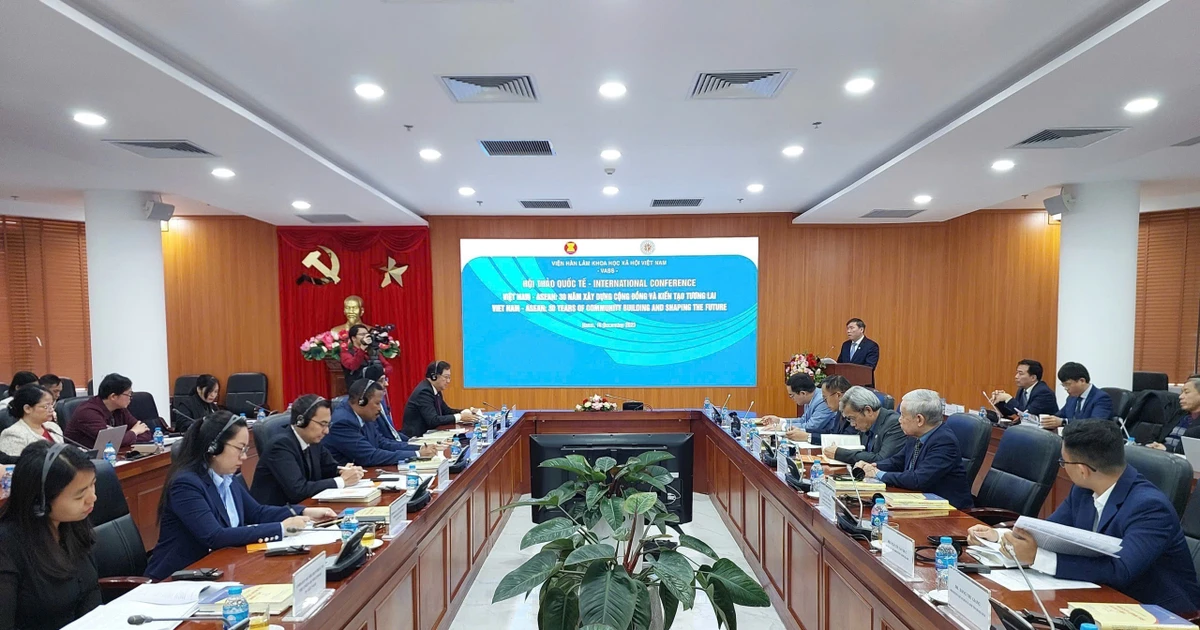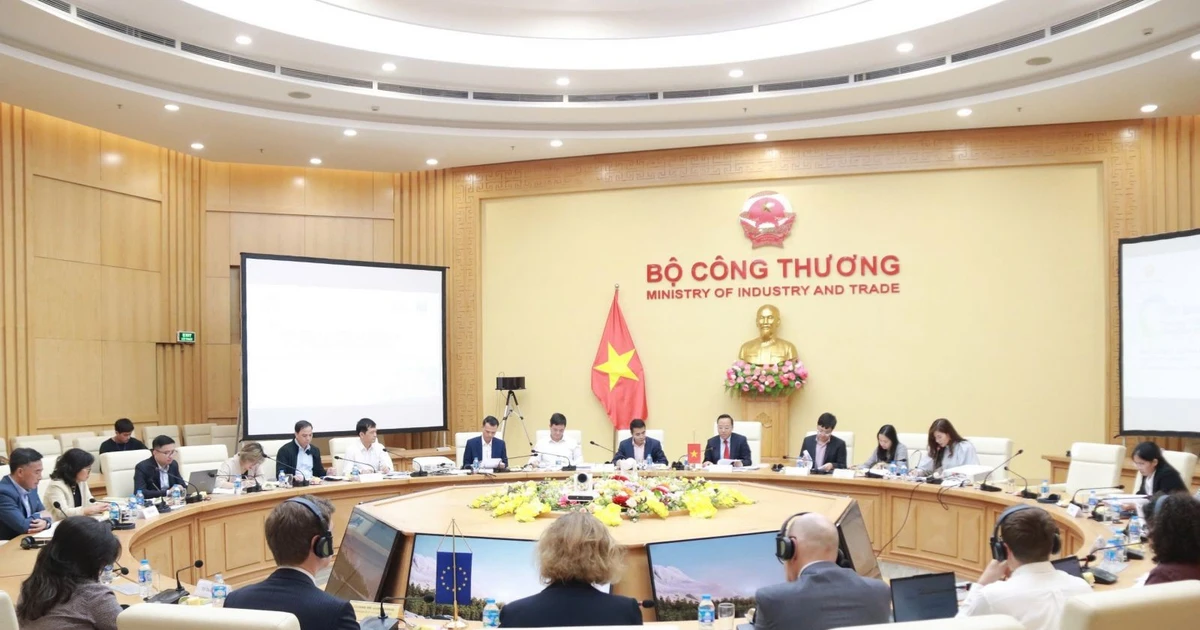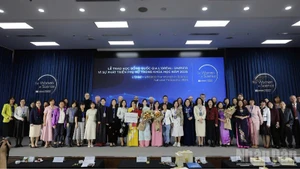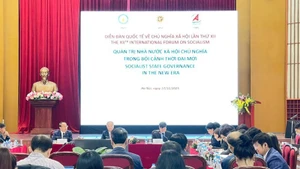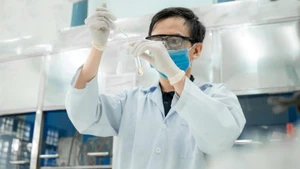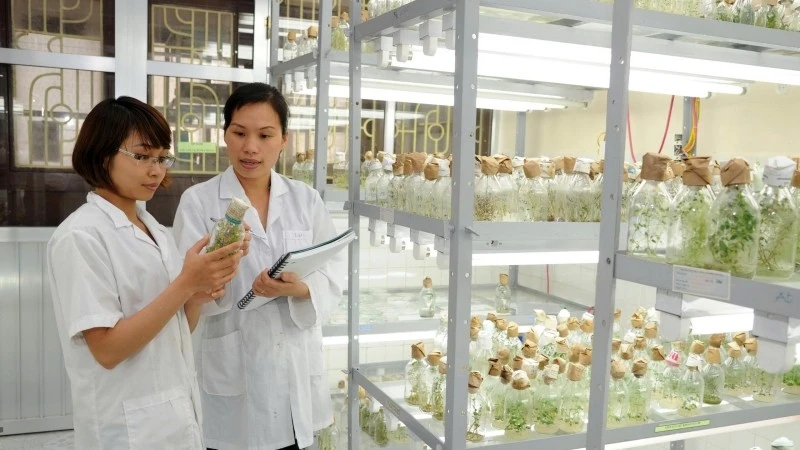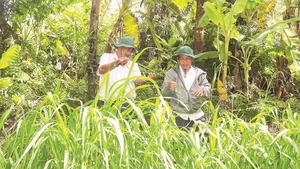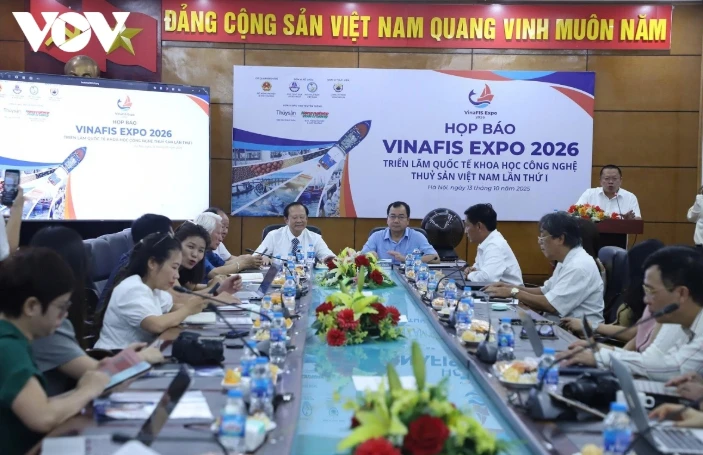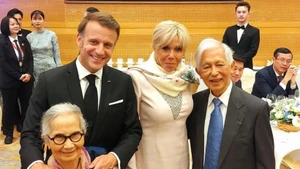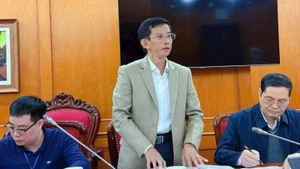212 projects competing across 22 fields
According to the Ministry of Education and Training, the 2024-2025 National Science and Technology Research Competition for secondary and high school students attracted participants from 62 out of 63 provincial departments of and training, along with 12 institutions affiliated with universities, research institutes, and centrally governed high schools.
A total of 212 projects are competing in this year’s competition, including 190 projects from high school students and 22 projects from secondary school students. The competition has drawn 401 students in total, with 358 from high schools and 43 from secondary schools.
The projects span 22 fields, including animal science, biochemistry, biomedical and health sciences, social and behavioural sciences, chemistry, earth and environmental sciences, mathematics, microbiology, physics and astronomy, plant sciences, robotics and intelligent machines, and system software.
Professor Dr Nguyen Ngoc Ha, Head of the Judging Panel and Deputy Director of the Quality Management Department (Ministry of Education and Training), remarked that this year's research topics are rich and diverse, reflecting students’ creativity and eagerness to learn.
In natural sciences and technology, many of the projects in chemistry, biochemistry, physics, and astronomy focused on advanced materials, renewable energy, biosensors, and optimising chemical processes. Some even incorporated nanotechnology to improve catalytic efficiency and develop environmentally friendly materials.
In engineering and information technology, numerous projects explore robotics, embedded systems, and system software, keeping pace with trends in digital transformation, artificial intelligence, computer vision, and the Internet of Things. The research focuses on optimising data processing algorithms, developing AI models capable of real-time learning and adaptation, and designing intelligent automation systems for industry and daily life.
Meanwhile, projects in social and behavioural sciences reflect students’ concerns about environmental issues, climate change, and the impact of technology on daily life.
Ha emphasised that, under the guidance of their teachers, students have not only demonstrated creativity in their projects but also highlighted their perseverance and dedication. Many research teams independently explored, experimented, and overcame failures to refine their projects. This reaffirms the competition’s value in fostering an environment in which students can engage in real scientific research and discovery.
Scientific innovation from reality
As one of the outstanding projects that won first prize in the National Science and Technology Research Competition, the High-Performance Lithium Vanadium Oxidation Material for Environmental Treatment project by Do Ha Phuong and Nguyen Duc Thai from Viet Duc High School (Hoan Kiem District, Hanoi) impressed not only with its practical applications but also with the students’ creativity and dedication to research.
Do Ha Phuong, representing the team, shared: “When we knew that our project had won first prize, we were overwhelmed with happiness. That moment was not just about joy, it was a testament to our nine months of hard work and perseverance.” The project’s greatest strength lies in its ability to address two major issues simultaneously: water pollution and waste pollution from used batteries.
Through their research, the team realised that the demand for lithium batteries is increasing, however recycling them in Vietnam remains challenging and costly. Acknowledging this, they aimed to develop a solution that recycles and repurposes lithium from discarded batteries, helping minimise environmental impact while opening new possibilities in waste treatment technology. Additionally, they were deeply concerned about water pollution, particularly the issue of dyed wastewater from traditional silk villages.
By analysing real-life situations and gathering information, the team discovered that this type of waste directly affects local water sources. “This inspired us to utilise recycled lithium to create a new material capable of treating polluted dyed wastewater. We hope that in the future, this research can be applied in real-world settings to help tackle urgent environmental issues,” Phuong explained.
Nguyen Boi Quynh, Principal of Viet Duc High School, emphasised that participating in the National Science and Technology Research Competition is not just an opportunity for students to showcase their passion, it also allows them to develop their abilities and apply the knowledge they have gained.
This competition demands a well-rounded skill set, not only in science and technology but also in English proficiency, as students must research materials and present their findings effectively. By participating, students gain numerous benefits, from expanding their scientific knowledge and developing critical thinking skills to improving their language abilities, enabling them to access a wealth of global knowledge.
In reality, many students entering high school tend to shy away from natural sciences and focus more on social sciences. The school recognises that if a balance between the two is not encouraged, students may lack a strong scientific foundation, leading to difficulties in career orientation later on. To promote sustainable development and inspire greater interest in natural sciences, the school has established a STEM club, it also organises various academic competitions and provides engaging learning platforms.
Additionally, students can join clubs in universities or educational institutions that provide hands-on research experience. With a strong passion for learning and scientific exploration, students will always receive support and guidance from their schools.
According to Deputy Minister of Education and Training Pham Ngoc Thuong, in recent years, the movement for scientific research, technological innovation, and STEM education has been expanding and achieving remarkable results, aligning with the nation’s comprehensive educational reforms.
He expressed his hope that the number of projects participating in the competition will increase in the 2025–2026 academic year, with even higher quality and greater enthusiasm for scientific creativity and discovery among students.
Education experts believe that the competition is not only an engaging academic platform but also a driving force for active and creative learning, in line with the 2018 General Education Programme.
The National Science and Technology Research Competition for secondary and high school students was first launched by the Ministry of Education and Training in 2013. Since then, it has been held annually in the second semester of each academic year. In 2025, out of 212 competing projects, the judging board awarded 12 first prizes, 36 second prizes, 36 third prizes, and 36 fourth prizes to the most outstanding entries. The highest-ranked projects that meet the necessary criteria will be selected by the Ministry of Education and Training to represent Vietnam at the International Science and Engineering Fair, which is scheduled to take place in the United States in May 2025.
(Source: Ministry of Education and Training)
